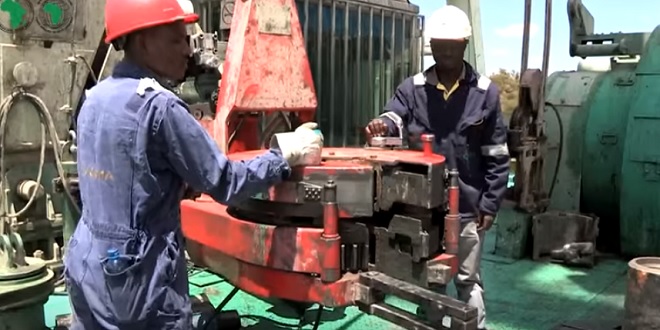
Africa is the world’s last frontier market, and Western businesses need to take advantage of its potential
COMMENT | LANDRY SIGNE | Since 2000, at least half of the world’s fastest-growing economies have been in Africa. And by 2030, Africa will be home to 1.7 billion people, whose combined consumer and business spending will total $6.7 trillion.
Seven years ago, the Harvard Business Review pointed out that Africa is also home to many of the world’s biggest opportunities. And yet, despite its tremendous business potential, Africa has not risen to the top of Western business leaders’ agendas.
In fact, between 2014 and 2016, US exports to Africa fell by almost half, from $38 billion to $22 billion. And while the United Kingdom’s investments on the continent more than doubled between 2005 and 2014, reaching £42.5 billion ($57.6 billion), only 2.5% of its total exports are to Africa.
Western countries are quickly losing ground to China, which increased its exports to Africa more than sevenfold – to $103 billion – from 2005 to 2015. If Western businesses hope to keep up, they will need to tap into the African countries and sectors with the highest potential for growth.
By 2030, more than half of Africa’s population will reside in seven countries: Nigeria, Ethiopia, the Democratic Republic of Congo, Egypt, Tanzania, Kenya, and South Africa. But, more important, 43% of Africans will belong to the middle or upper classes, up from 39.6% in 2013, implying considerably higher demand for goods and services. By 2030, household consumption is expected to reach $2.5 trillion, up from $1.1 trillion in 2015.
Nearly half of that $2.5 trillion will be spent in three countries: Nigeria (20%), Egypt (17%), and South Africa (11%). But there will also be lucrative opportunities in Algeria, Angola, Ethiopia, Ghana, Kenya, Morocco, Sudan, and Tunisia. Any one of these countries would be a good bet for companies seeking to enter new markets.
By 2030, the sectors generating the most value in Africa will be food and beverages ($740 billion), education and transportation ($397 billion), and housing ($390 billion). But there will also be strong growth in consumer goods ($370 billion), hospitality and recreation ($260 billion), health care ($175 billion), financial services ($85 billion), and telecommunications ($65 billion).
Of course, much of this growth will depend on the African Union properly implementing its new Continental Free Trade Area, which would create a single market for goods and services, offering corporations many points of entry. Moreover, the CFTA will increase the need for connectivity, so there will be new opportunities to invest in infrastructure and sectors ranging from transportation and energy to information and communications technology (ICT) and water supplies. For its part, the African Development Bank can help investors find promising projects through its Program for Infrastructure Development in Africa.
Another major growth area between now and 2030 will be in African business-to-business spending, which will reach $4.2 trillion, up from $1.6 trillion in 2015. Here, the largest sectors will be agriculture and agricultural processing ($915 billion), manufacturing ($666 billion), and construction, utilities, and transportation ($784 billion), followed by wholesale and retail ($665 billion), resources ($357 billion), banking and insurance ($249 billion), and telecommunications and ICT ($79.5 billion).
The expected growth in agriculture and agricultural processing reflects the fact that food and beverages will constitute the largest share of total household spending. Moreover, 60% of the world’s unused arable land is in Africa, which still contributes a meager share of worldwide agricultural exports. That means there is a lot of room for growth. And, because severe hunger still affects many African countries, investors can even contribute to the public good by investing in fertilisers, machinery, water and irrigation systems, and other areas of the agriculture sector.
As of 2012, the African countries with the highest agricultural value-added in terms of annual growth included Burkina Faso, Ethiopia, Nigeria, Mali, Mozambique, Rwanda, and Tanzania. In addition, Angola, Morocco, and South Africa now all have sizable markets, and have committed to expanding their agricultural sectors.
According to the Harvard Business Review, Africa also has the potential to become “the world’s next great manufacturing center.” China is expected to lose from 85-100 million low-cost, labour-intensive manufacturing jobs by 2030, and Africa stands to capture many of them.
This helps to explain why manufacturing will be the second-largest sector in terms of business-to-business spending. Another reason is that many of the manufacturing opportunities in Africa happen to be in globally competitive sectors such as automobiles and transport equipment, refined petroleum, computers, and office and industrial machinery. South Africa, Egypt, and Nigeria are already becoming promising places to invest in these areas. And investors will also be able to find high returns and favourable business environments in Ethiopia, Morocco, and Rwanda.
Africa is the world’s last frontier market, and Western businesses need to start taking advantage of its tremendous potential, as Chinese firms already are. Doing business in Africa will also create sustainable jobs and advance the United Nations Sustainable Development Goals to eliminate poverty and hunger. And that, too, will be good for the bottom line. As the Business and Sustainable Development Commission has shown, pursuing the SDGs “could raise trillions in new market opportunities in ways that extend prosperity to all.”
*****
Landry Signé is a David M. Rubenstein Fellow in the Global Economy and Development Program and Africa Growth Initiative at the Brookings Institution, and a Distinguished Fellow at Stanford University’s Center for African Studies.
Copyright: Project Syndicate, 2018.
 The Independent Uganda: You get the Truth we Pay the Price
The Independent Uganda: You get the Truth we Pay the Price




Hello there,
I go by the name of Tensa Rwegasira, I was born in TZ (Tanzania) however raised in Holland. I just been intrigued with what Africans feel for their respective nations. The days of fighting for a sovereign state are over. We have.. well I would say we had control of our nations became colonized then independent… If it wasn’t for the black consciousness movement and partnerships such as the Non Alignment Movement (NAM) fighting for the rights of our people.
From direct and indirect rule. Well it’s 2018, I was born in 1986. Africa is unique with its abundance of resources and a predicted major population boom. Or what the American would like to say baby boomers it is real surprising how we are not setting our priorities straight. Policy wise, it is awkward how and wonder what goes through the minds of the beloved or loathed public figures when it comes to agenda setting.
How to evaluation, to reviewing then to execution and then again back to agenda setting. This is not to say that all leaders are evil beings just the rotten few. My history of Uganda is non existent now besides me knowing about Idi Amin and The Honrable Yoweri Museveni. How can we still have issues of election tampering, fraud, miscount, opposing leaders generally speaking in today’s Africa.
How can it be that, with newspapers whether state owned or liberal have the ability to exist in a way so bad that the masses are misinformed. We live in a globalized world, where technology and reason region supreme. Ignorance is something of the past… we know what is happening around the world, through technology… however sadly the elders or young ones are amazingly ignorant when it comes to rights of their own and those of their loved ones or of the nations abroad and within the continent.
How is the nation going to modernize or even progress to a nation in advancement or supposed high returns if the policies in place benefit a few and not everyone. This exclusion rather than inclusion is hurting the economy… as a whole. It is also related in my view to a lack of transparency, rule of law.. institutions…. relations within the continent in regards to business and their neighbours. Yes issues have been landlocked countries with artificial borders, which confuse nations as what is rightly theirs or not… however with dialogue cannot it not be resolved.
A prime example, Kenya not so long ago had issues with maritime law in relation to who owns the sea, which has a lot to do with business and trade…. which is a good point but discussions is what politics is all about, if you cannot beat the, join them if anything arm up for precaution. Intergovernmental organizations from abroad always say Africa rising.. but how is it rising… if one is referring to Gross Nationals Income then how did they do it, and why is the policy not implemented in other regions. If Human Development follows then why not in other regions within the continent.
A Ugandan man, in his TedTalk said it eloquently that, the piper calls the tune…. with that being mentioned when is the debt or forgiveness of people want to really help Africa going to be removed. Debt outweighs anything, and hurting Africa’s return in the form of capital. Heavy reliance in foreign nations…. whether it be through outsourcing or Public Private Partnerships is just baffling. What happened to the measures.. meaning austerity measures whether fiscal or monetary going to do if we are technically in the red in terms of finance.
This is not a bashing, of Africa one bit, nor isn’t be a negative perception of Africa, one of searching the truth. I am happy to hear about the African Continental Free Trade Agreement. I hope it works out, but in today’s international system… it seems s if its going to take more than this to realize that tariffs and how the nation is ruled whether command or market is going to take off in the right way.
I just hope, that people need to know a lot of problems are arising within Africa…. Societal problems…. which are testing Africa’s traditions and values especially customs… Leaders and others want to keep the status quo… the norm….. but I fear the ones getting played are the leaders…. because for one reason….. the outside world is effecting them. Millennials, not me I am a Generation X are speaking up, making themselves heard and that is something of a culture shock…. for the old heads.
Power Purchasing Parity (PPP) is not going to improve if nation lacks skills and education.. policies and school shutdowns are not going to help, an example South Africa, with the high fees….. or Tanzania with the free education….. it is either poor education or no education at all…. I hope deep down the youth do some soul searching on the other hand, because the demands are seriously unbelievable in today’s reality.
The diaspora is either coming or going, losing talent, because of persecution or lack of opportunities is a sign of low returns rather than high returns. To invest in the African economy. It’s not all gloom… however I just want to know what the African Union and African Development Bank are doing about this….
Protests and violence are hurting foreign direct investment… though morally right, is also morally damaging to the nation as a whole. This tit for tat, is not perceived well abroad. Though you will find Afrocentric masses begging to differ, but how about thinking about the afrobarometer…. and with it, issues of lack of transparency, corruption, accountable public figures and governance doing to wane this problem.
Julius Nyerere stated that the land is given by God, now, it is is given to the highest bidder, ruining the tourism industry, conservation and wildlife are in danger. Hurting the doing good.
I surely think that Africa has a lot of potential, but how to harness it and use it in the right manner is a problem….
I would love to hear what the editor thinks and readers… have to say……